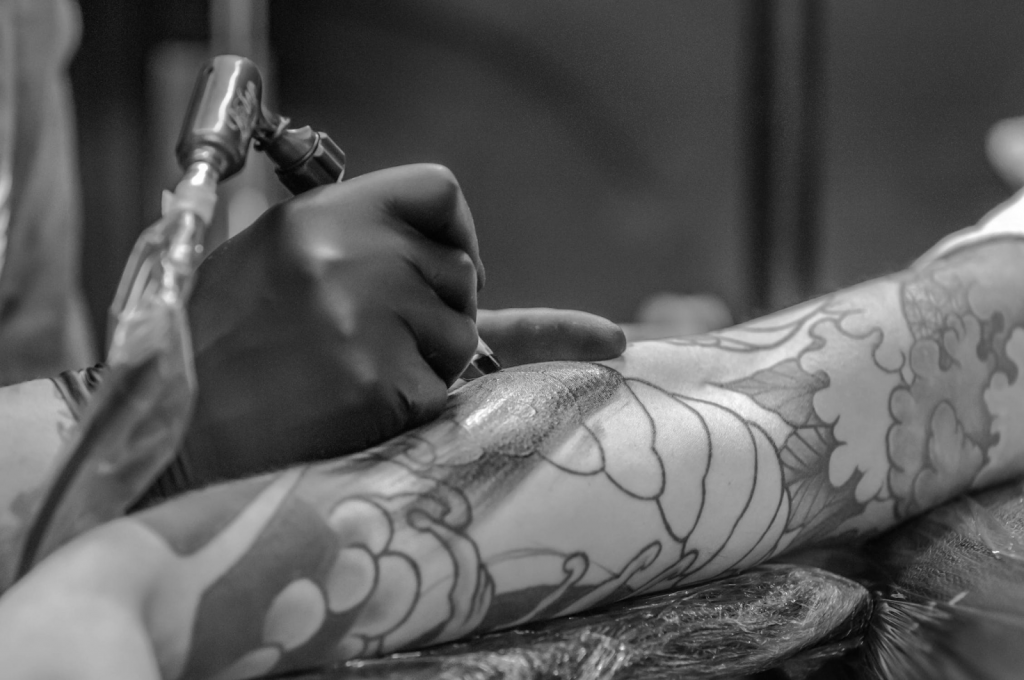
Getting a new tattoo is an exciting experience, but it’s important to take care of your new ink properly to ensure its longevity. In this blog post, we will discuss six crucial things you should know about tattoo aftercare. So, if you want to know more about how to take care of your new tattoo, read on!
1. Tattoo bubbling is not normal
If you notice your tattoo bubbling, it is not normal and you should seek medical attention immediately. Bubbling can indicate an infection, so it’s important to get it checked out as soon as possible. Infections can cause serious damage to your skin and body if left untreated. A bubbling tattoo is one of the first signs of an infection, so don’t ignore it. If you’re unsure whether your tattoo is bubbling, please consult with your tattoo artist. They will be able to tell you if what you’re seeing is normal healing or something more serious. Remember, your health is always more important than your tattoo. Sometimes, people ignore early signs of infection because they don’t want to ruin their tattoo. But, it’s better to be safe than sorry.
2. Your tattoo will peel
After you get a tattoo, it’s normal for the skin around your tattoo to peel. This is part of the healing process, as your skin is shedding the dead cells that were damaged during the tattooing process. Peeling usually starts around three to five days after getting a tattoo, and can last for up to two weeks. If you notice any excessive redness, swelling, or pus, please see a doctor right away as these could be signs of an infection. During the peeling process, it’s important to keep your tattoo clean and moisturized. Gently wash your tattoo with soap and water twice a day, and apply a thin layer of unscented lotion every few hours.
3. You will need to protect your tattoo from the sun
After your tattoo has healed, you will need to take special care to protect it from the sun. UV rays can cause fading and other damage to your tattoo, so it’s important to always use sunscreen when you’re going to be in the sun. Choose a sunscreen with an SPF of at least 30, and apply it generously to all exposed areas of the skin. Reapply every two hours, or more often if you’re sweating or swimming. Be sure to avoid sun exposure during the healing process, as this can irritate the skin and delay healing. If you must be in the sun, make sure to cover your tattoo with a bandage or clothing.
4. Your tattoo will fade over time
All tattoos will eventually fade, but how quickly this happens depends on several factors. Tattoo aftercare is the most important factor in preserving your tattoo, but genetics, skin type, and sun exposure can also affect how quickly your tattoo fades. To help keep your tattoo looking its best, follow the aftercare instructions from your artist and reapply sunscreen regularly. The fading process can be slow, so don’t be discouraged if you don’t see results right away. Also, keep in mind that some ink colors will fade more than others. For example, black and white tattoos tend to hold their color better than colored tattoos. If you’re concerned about your tattoo fading, talk to your artist about touch-ups.
5. Don’t scratch
As your tattoo heals, you may notice that it feels itchy. This is normal, as the skin around your tattoo is still healing and adjusting to the new ink. However, it’s important to resist the urge to scratch, as this can cause damage to the skin and slow down the healing process. If your tattoo starts to itch, try gently patting it with a cool cloth or taking a cool shower. You can also apply a thin layer of unscented lotion to help soothe the itch. Avoid using scented products on your tattoo, as these can irritate the skin. The itching should go away within a few days, but if it persists for more than a week, please see a doctor.
6. Your tattoo is for life
This may seem like an obvious one, but it’s worth repeating: your tattoo is for life. Once you get a tattoo, it’s permanent. There are a few methods of tattoo removal, but they are all expensive and can cause scarring. So, before you get a tattoo, be sure that you’re ready to commit. Think carefully about the placement of your tattoo, as this will affect how easy it is to cover up in the future. And make sure to do your research on artists and shops before getting inked. A bad experience can leave you with a subpar tattoo—or worse, an infection.
If you follow these aftercare instructions, your tattoo should heal without any problems. But if you notice anything unusual (e.g., excessive redness, swelling, or pus), please see a doctor right away as these could be signs of an infection. So, there you have it! The six things you need to know about tattoo aftercare. Now go out and get inked! Just don’t forget to take care of your new tattoo.













